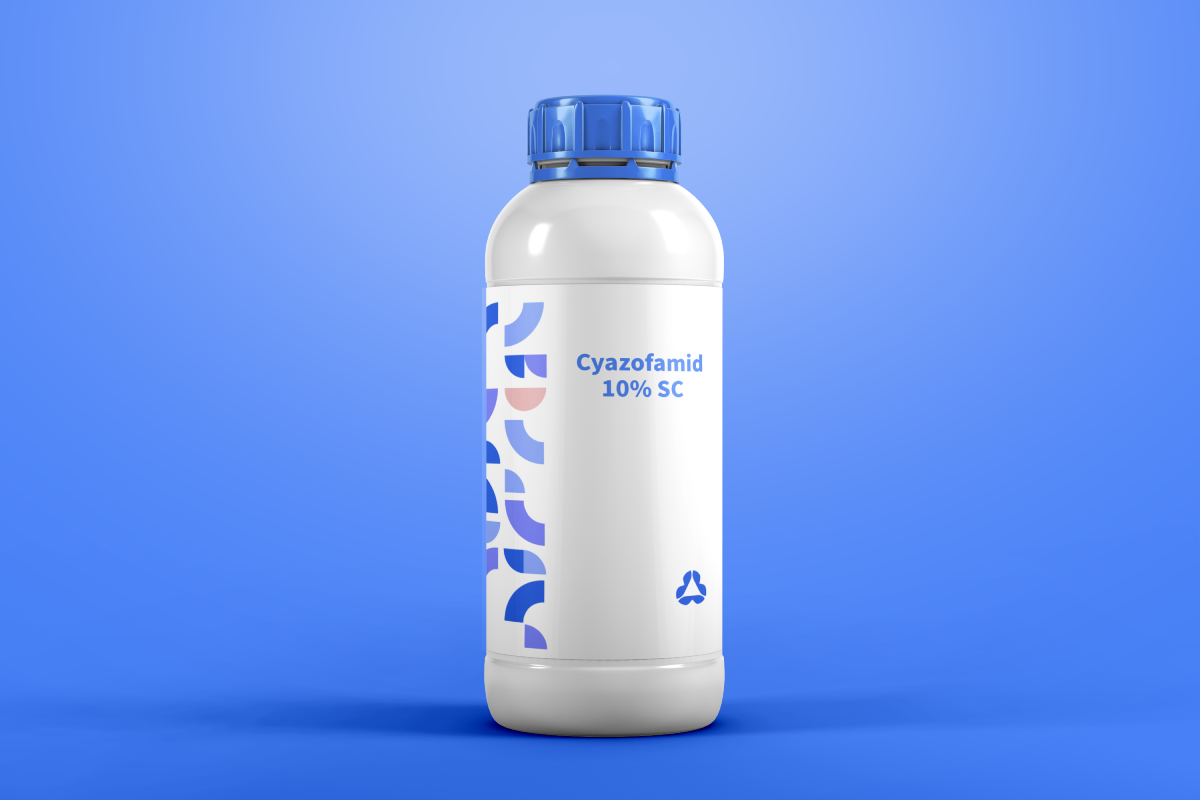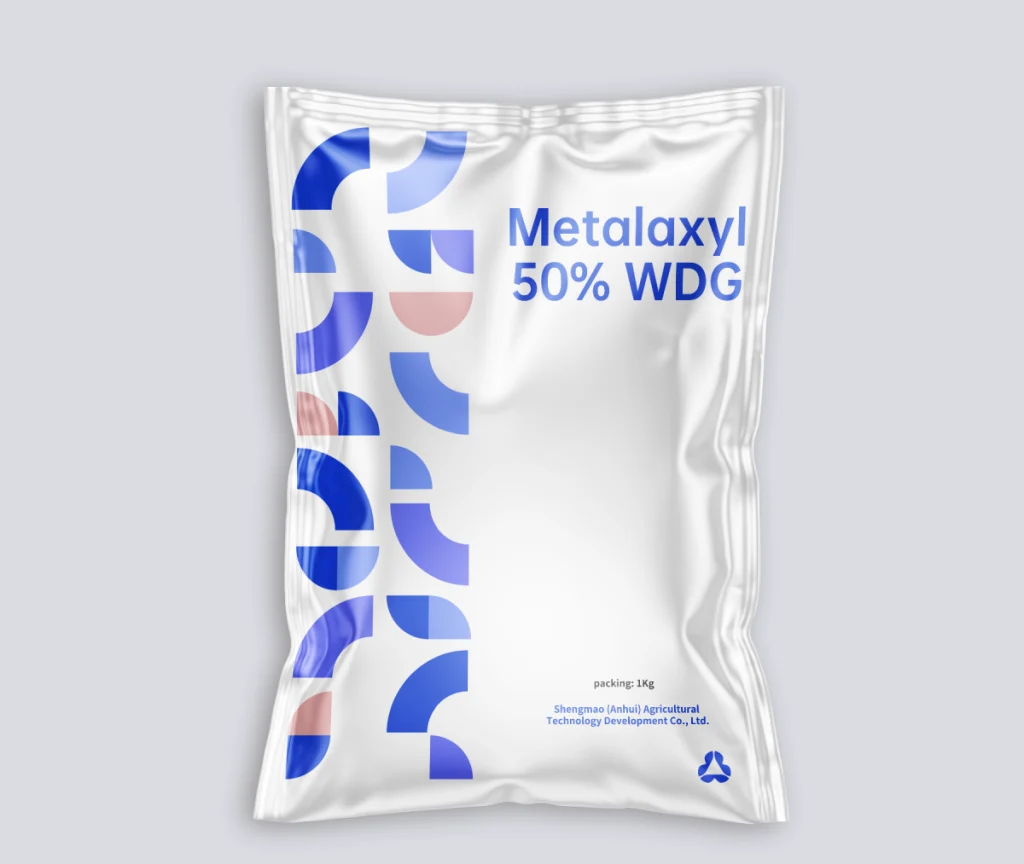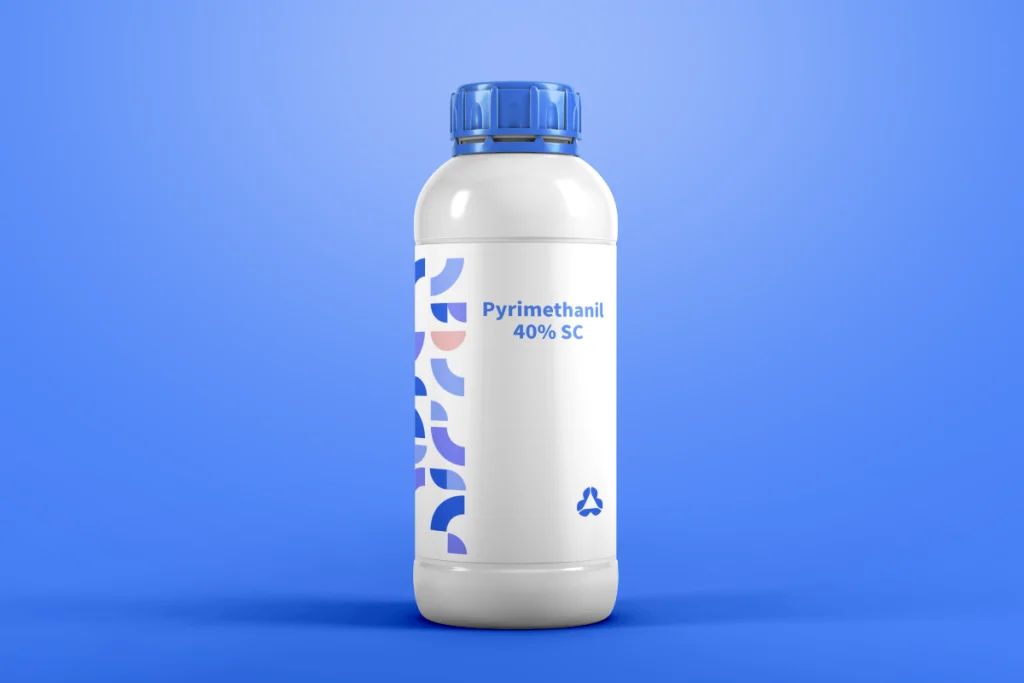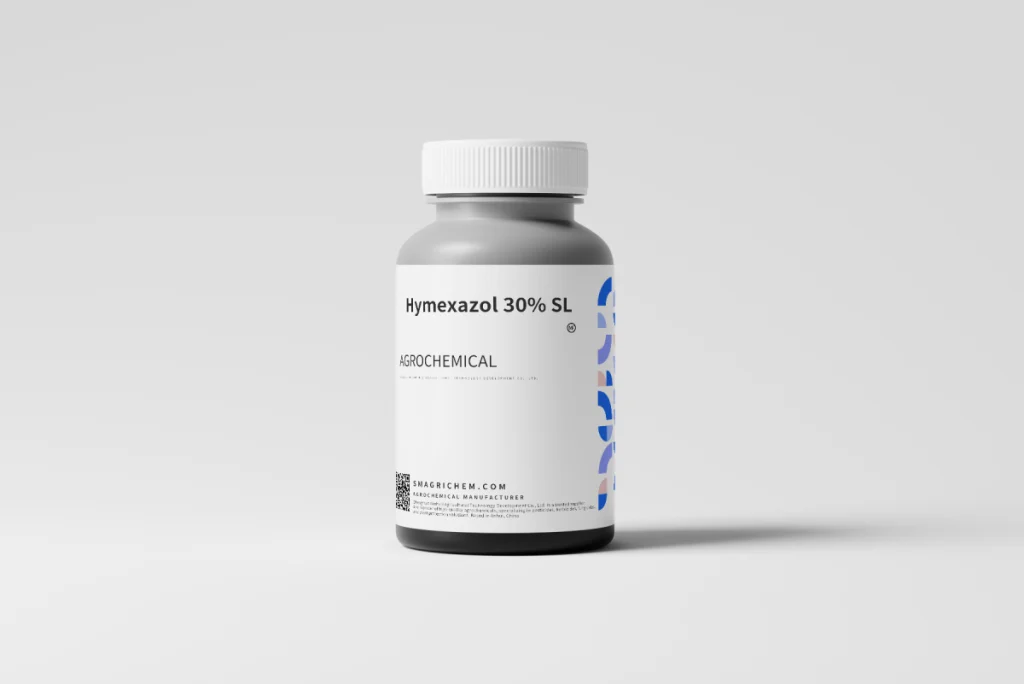Active Ingredient
Cyazofamid 10% (SC formulation)
CAS Number
120116-88-3
Chemical Class
QiI Fungicide (Quinone inside Inhibitor) – FRAC Group 21
Mode of Action
Cyazofamid inhibits the mitochondrial complex III (Qi site), disrupting energy production in oomycete fungi. This targeted mode of action leads to rapid inhibition of fungal development while maintaining high selectivity and crop safety.
Target Pathogens
-
Phytophthora infestans (Late blight)
-
Peronospora spp. (Downy mildew)
-
Pythium spp. (Root rot and damping-off)
Application Crops
-
Tomato
-
Potato
-
Cucumber
-
Lettuce
-
Grape
-
Onion
-
Spinach
-
Ornamentals
Recommended Dosage & Use
| Crop |
Disease Controlled |
Application Rate |
Timing & Frequency |
| Tomato |
Late blight |
500–750 mL/ha |
Start preventively, repeat every 7–10 days |
| Potato |
Late blight |
500–700 mL/ha |
Before disease onset, 2–3 applications |
| Cucumber |
Downy mildew |
400–600 mL/ha |
Start at first signs of disease |
| Lettuce |
Downy mildew |
500 mL/ha |
Apply every 7–10 days as needed |
| Ornamentals |
Pythium, Phytophthora |
500–750 mL/ha (or 50–100 mL/100 L water) |
Foliar spray or drench based on risk |
Use a water volume of 200–500 L/ha depending on crop type and canopy density. Ensure thorough coverage for best performance.
Key Benefits
-
Highly selective against oomycete fungi (no activity on true fungi)
-
Fast-acting with protective and anti-sporulant effects
-
Rainfast within 1–2 hours after application
-
Low phytotoxicity – safe for sensitive vegetable and ornamental crops
-
Excellent compatibility with tank-mix partners
-
Ideal for resistance management programs due to its novel mode of action
Packaging Options
-
100 mL / 250 mL / 500 mL bottles
-
1 L / 5 L / 20 L HDPE drums
-
Custom packaging available for OEM/ODM and private label orders
Storage and Shelf Life
Store in a cool, dry, and ventilated area. Keep out of direct sunlight. Shelf life is 2 years in original sealed packaging.
Frequently Asked Questions (FAQ)
Q1: What makes Cyazofamid different from other fungicides?
A: Cyazofamid specifically targets oomycete fungi (like Phytophthora and Pythium) with minimal impact on beneficial fungi or bacteria. It’s highly effective at low concentrations and has a unique mode of action (FRAC Group 21).
Q2: Can I mix Cyazofamid with other fungicides or insecticides?
A: Yes, it is generally compatible with most fungicides (like mancozeb, cymoxanil, dimethomorph) and insecticides. However, always perform a small-scale jar test before tank mixing.
Q3: Is Cyazofamid safe for bees and beneficial insects?
A: Yes, it has low toxicity to pollinators and natural enemies when used as directed. Avoid spraying during peak bee activity to minimize exposure.
Q4: How soon after spraying does Cyazofamid become rainfast?
A: Typically, Cyazofamid becomes rainfast within 1–2 hours after application, depending on drying conditions.
Q5: Does Cyazofamid have any curative effect?
A: It is primarily preventive and inhibits spore germination and infection. However, early-stage curative activity has been observed when applied shortly after infection.
Q6: How long is the pre-harvest interval (PHI)?
A: The PHI varies by crop, generally 3–7 days. Always check local label recommendations.
Q7: Is this product suitable for hydroponic or greenhouse use?
A: Yes, Cyazofamid 10% SC can be safely used in greenhouse environments and controlled production systems.




